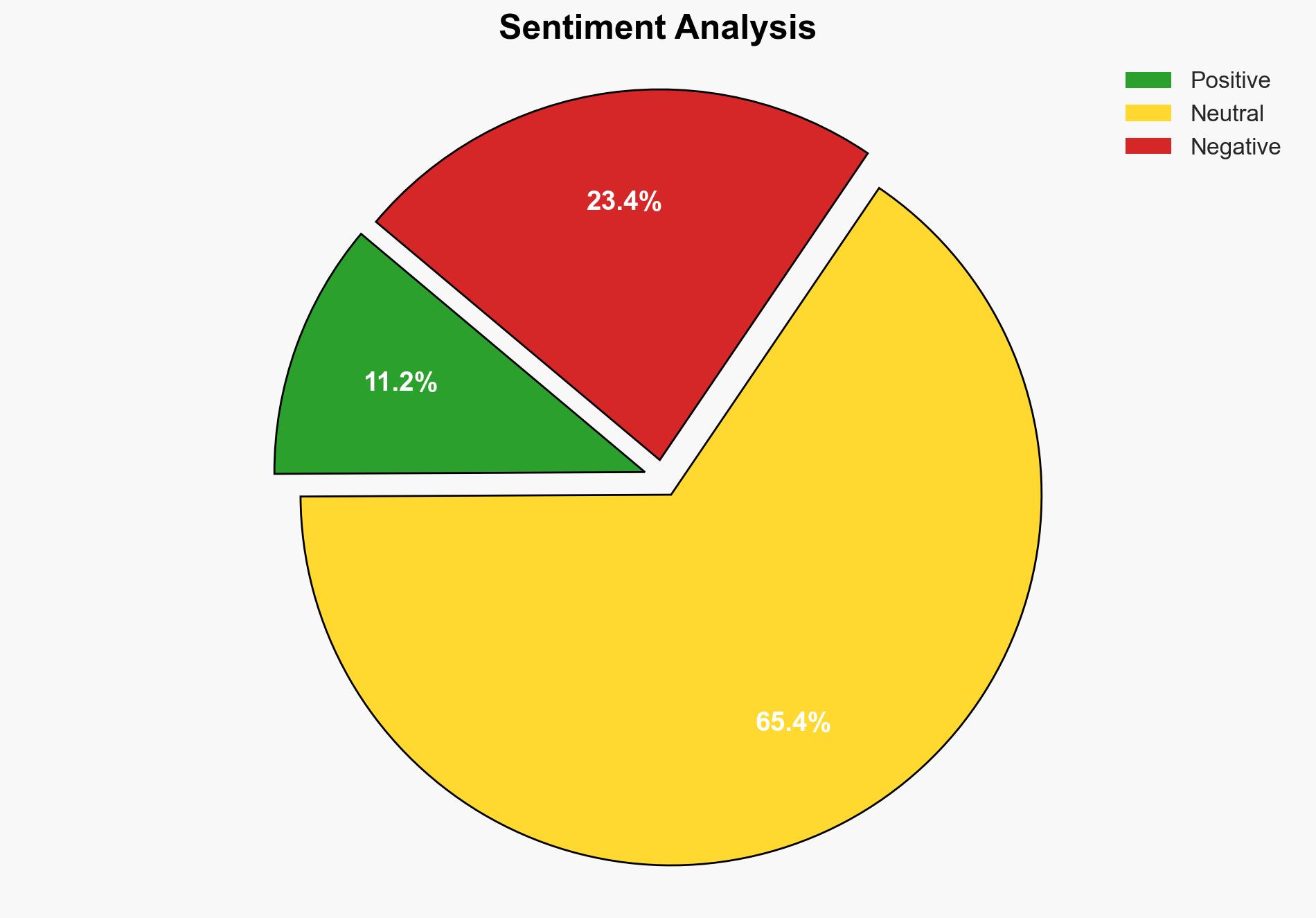Israel blasts Hezbollah targets in Lebanon in wave of retaliatory airstrikes – New York Post
Published on: 2025-03-22
Intelligence Report: Israel blasts Hezbollah targets in Lebanon in wave of retaliatory airstrikes – New York Post
1. BLUF (Bottom Line Up Front)
Israel conducted a series of airstrikes targeting Hezbollah positions in Lebanon following a rocket attack on the Israeli border town of Metula. The strikes were in response to what Israel described as a violation of a fragile ceasefire agreement. The situation poses significant risks to regional stability and could escalate tensions further if not managed effectively.
2. Detailed Analysis
The following structured analytic techniques have been applied for this analysis:
General Analysis
The Israeli airstrikes targeted multiple Hezbollah assets, including rocket launchers, command centers, and infrastructure. This military action was a direct response to a rocket attack on Metula, which Israel claims violated the ceasefire agreement. Hezbollah has denied responsibility for the attack, maintaining its commitment to the ceasefire. The Israeli Defense Forces (IDF) have emphasized the need to protect Israeli citizens and have warned of further actions if necessary. The escalation occurs amidst ongoing tensions in the region, particularly with increased Israeli military operations in Gaza.
3. Implications and Strategic Risks
The recent escalation between Israel and Hezbollah poses several strategic risks:
- National Security: Increased hostilities could lead to a broader conflict involving multiple regional actors, threatening national security.
- Regional Stability: The fragile ceasefire is at risk, potentially destabilizing Lebanon and surrounding areas.
- Economic Interests: Prolonged conflict may disrupt economic activities, affecting trade and investment in the region.
4. Recommendations and Outlook
Recommendations:
- Engage in diplomatic efforts to reinforce the ceasefire and prevent further escalation.
- Enhance intelligence-sharing mechanisms to accurately attribute attacks and prevent miscalculations.
- Consider technological advancements in defense systems to mitigate threats from rocket attacks.
Outlook:
Best-case scenario: Diplomatic interventions succeed in restoring the ceasefire, reducing tensions and stabilizing the region.
Worst-case scenario: Continued hostilities lead to a full-scale conflict, drawing in additional regional actors and causing widespread instability.
Most likely outcome: Sporadic clashes continue, with intermittent diplomatic efforts to manage tensions and prevent escalation.
5. Key Individuals and Entities
The report mentions significant individuals and organizations, including:
- David Azoulai
- Steve Witkoff
- Tucker Carlson
These individuals are involved in various capacities related to the ongoing situation, though specific roles or affiliations are not detailed in this report.




